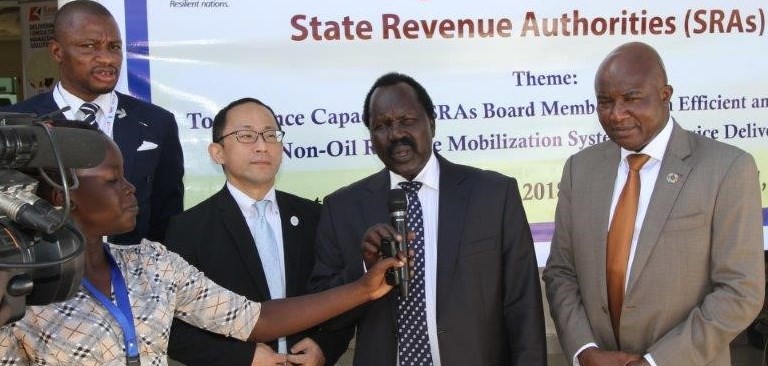The United Nations Development Programme (UNDP) said taxation and alternative revenue generation is pivotal for achieving equity and poverty alleviation in South Sudan.
This comes after UNDP, in partnership with the government of Japan and the African Development Bank, organized a two-week long training workshop for state revenue authority board members. Opened at Juba Regency Hotel on Monday, the training aims to strengthen members’ leadership and oversight capacities in an effort to enhance governance, accountability, and transparency for about 40 State Revenue Authorities Board Members from Torit, Jonglei and Gogrial, in addition to officials from Amadi State.
“In South Sudan, 90% of tax revenue comes from a single source revenue – oil – that depends largely on external factors and international markets. We need other sources for revenue generation to create fiscal space, broaden choices and deliver much-needed services to the people of South Sudan” says Dr Kamil Kamaluddeen, UNDP Country Director. “We are seeing some of the fruits already. In Aweil, roads rehabilitated through improved taxation supported by the project, are connecting people to essential services such as hospitals, marketplaces and production areas, contributing to women empowerment, improved livelihoods and a positive development impact on the lives of the people. UNDP remains strongly committed to providing continued support to PFM with the approach that places the people at the centre of all our interventions.”
Mitsuhiro Toyama, Chargé d'affaires of the Embassy of Japan, said “Japan has been providing a range of capacity building support to South Sudan with UNDP and other partners. Recognizing the importance of accountable and transparent public services in general and sounder PFM through improved taxation, we believe that this training is very important not only for a strengthened public sector in its delivery of social services but also for the improvement of the lives of the South Sudanese people.”
During the opening remarks, on the side of the government, Kot Martin, Chairperson of the Public Account Committee, South Sudan’s Transitional Legislative Assembly, thanked Japan for the generous support provided, and UNDP for organizing the training, and stated that the importance of improving the taxation system and management cannot be understated and this training will play an important role in building the required capacity of key stakeholders.
The Public Finance Management project, implemented by UNDP, supports the establishment of a unified tax structures legal framework of revenue generation at the subnational level for pilot state governments namely Jubek, Aweil and Gbudue with additional states of Torit, Jonglei and Gogrial. The project also provides capacity building training to tax officers, policy makers and board members.




